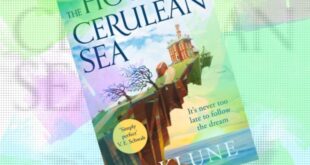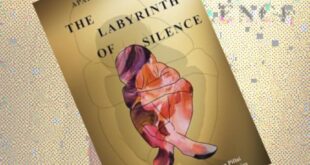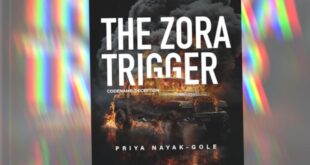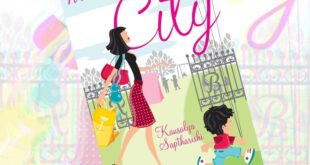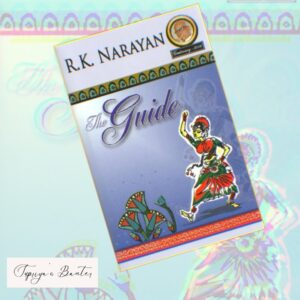
THE GUIDE
Author: R. K Narayan
Publisher: INDIAN THOUGHT PUBLICATIONS; 76th Reprint in 2010 edition (1 December 2007); INDIAN THOUGHT PUBLICATIONS
Language: English
Paperback: 99 pages
Everyone knows about the Indian bilingual blockbuster romantic drama film produced by Dev Anand- Guide. I had watched the movie in my youth and was left impressed by the storyline and Waheeda Rehman, who played Rosie Marco, the wronged wife of a driven archaeologist, but a narcissistic husband. I was never a fan of Dev Anand’s acting style, and this film didn’t do much to change my perception.
I was intrigued when, several years later, I came across the story written by R.K. Narayan. And somehow, everything about the film seemed twisted, overbearing and practically misconstrued. The mainstream movie is immensely popular, having won accolades at its prime and being analysed, discussed, and derided even fifty years after its release. But the book is no less. It won Narayan the Sahitya Kala Akademi Award (the first book in English to win the award). The novel and film share the same core narrative of Raju’s journey from a tourist guide to a spiritual leader or Rosie’s rise from a docile wife to a famed dancer, but there is a lot that is different. The two contrast in terms of the characters, their motivations, complexities, plot details, and thematic emphasis.
The book meanders through Malgudi’s dusty lanes, each turn revealing a new cast of characters. In a small South Indian town, Raju, a charming tour guide with hidden desires, meets Rosie, a talented dancer trapped by societal norms. Their intense bond ignites chaos as Raju evolves from guide to lover to spiritual guru, drawing mixed reactions from the townspeople.
You walk alongside Raju on his complex journey of ambition and love as he blurs the line between genuine faith and performance, even after a fall led by his pride. You sink into Rosie’s fierce independence, where she emerges as a woman who owns her life, even if adaptations soften her edges.
Narayan’s voice is simple, sharp, and sprinkled with humour. Apparently, he mocked the adaptation as “The Misguided Guide,” reflecting his disappointment in how Dev Anand’s movie “abolished Malgudi” and dumped it in Jaipur, stripping away his story’s soul. According to him, the film, glittering with songs and glamour, discarded his values in the milieu and human characteristics.
After reading the book, I can’t agree more with Narayan. While Dev Anand’s 1965 film adaptation sparkled with music, colour, and charisma, it missed the quiet irony and philosophical nuance that make Raju’s story unforgettable. The book gives us something richer: complexity, contradiction, and a deeply Indian meditation on selfhood. Not to mention an undiluted, tragic, yet ironic end to Raju’s journey.
While both the movie and the book are heart-strong and character-rich, the book draws you into the imperfectly perfect world of flawed characters. The movie may delight, but the book evokes a deeper feeling. You feel Rosie’s anguish, her grit and her heartbreak. You get to sit by Raju and watch his heart transform.
So, as with most of the movies adapted from books, if given a chance to choose between the book and the film, I’d choose the book any day.
What would you prefer?
 Supriya's Banter
Supriya's Banter
